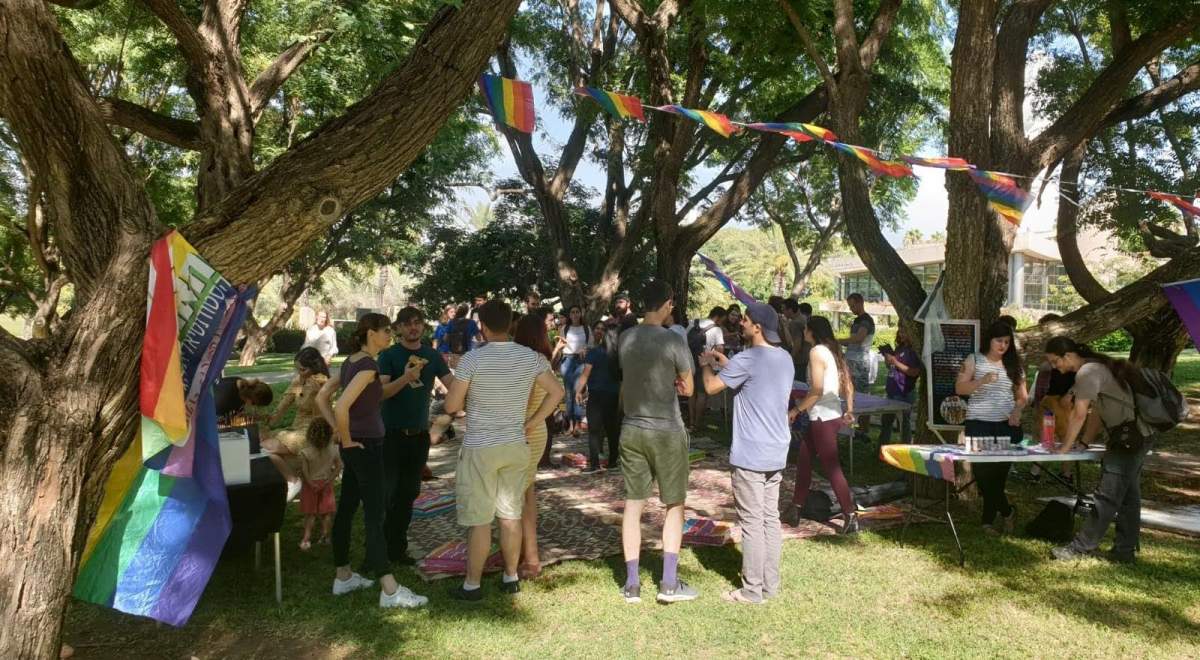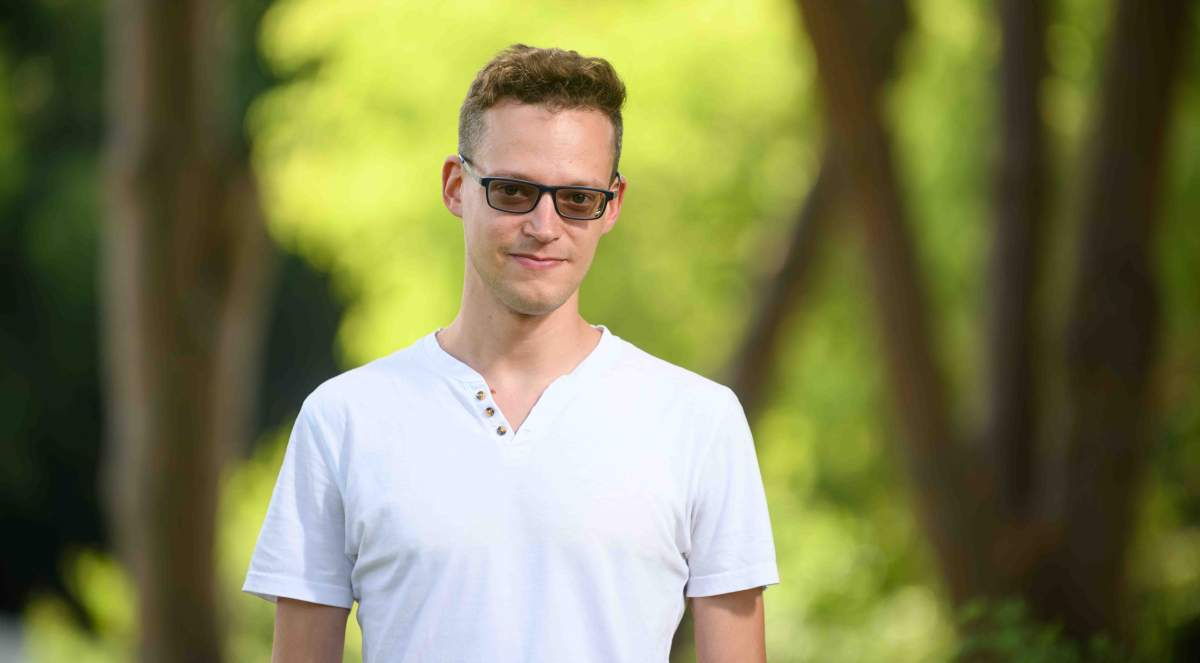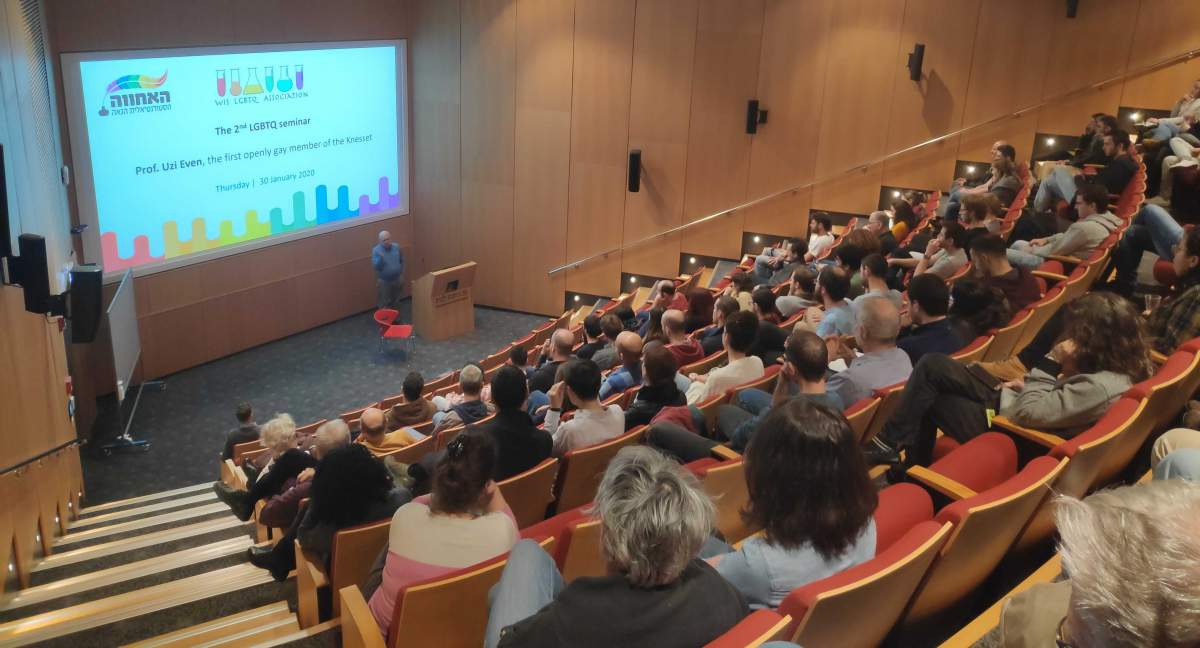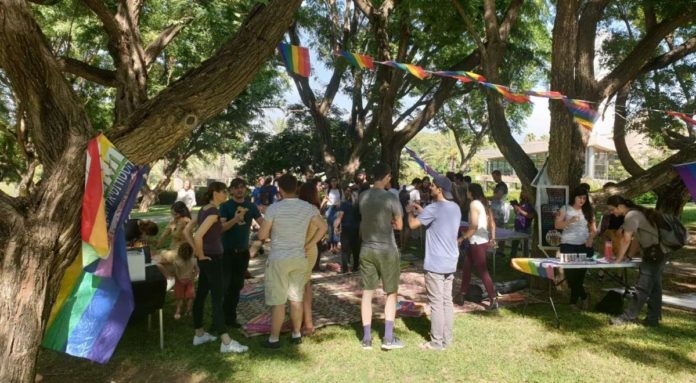Two decades after Tel Aviv’s first official Pride Parade in 1998 (and nearly 40 years after its unofficial predecessor in 1979), pride awareness events have finally landed in the Weizmann Institute of Science. The Institute’s first-ever pride event that took place in the summer of 2018 and was attended by more than 80 students, scientists and Weizmann employees, marked the initiation of a new organization on campus – the “WIS LGBTQ Association”.

Or Gross, a Weizmann alumnus, was the driving force behind the event. “Establishing an LGBTQ association was an important cause for me to pursue ever since I began my studies at the Institute. Many higher-education and research institutions throughout the country already have their own LGBTQ organizations and I felt that we are lagging behind on this front,” she said at the time. Awareness to the LGBTQ agenda has increased since then on campus and while COVID-19 may have rained down on last year’s parade, the Institute’s President, Prof. Alon Chen, sent out a special memo to WIS members to show his support of the LGBTQ community, mentioning Pride Month in particular. Expectations are high now as this year will see an even larger pride gathering, fully supported by the Institute’s management.
When people of different backgrounds and life-styles are grouped together there are more perspectives to respect and consider, and eventually this also resonates with our scientific endeavors
Today, the WIS LGBTQ Association is led by Dan Klein, a PhD student in Dr. Karen Michaeli’s group from the Department of Condensed Matter Physics. When Klein was first appointed to this role he thought of different ways to make the LGBTQ agenda more accessible throughout the campus – where “queer visibility” was almost nonexistent. “We invited Prof. Uzi Even, former senior defense scientist and first openly gay member of Knesset to speak on campus,” he says. “Later we invited Prof. Claire Thomas, transgender biologist from Penn State University to give a Zoom talk, and several months ago we also hosted Dr. Ben Johnson, current magazine editor of Nature Medicine.”

The WIS LGBTQ Association is one of many such organizations operating in Israel’s higher-education campuses that turn words into actions for many LGBTQ individuals. These organizations work under a national umbrella organization – a joint initiative of The Aguda – The Association for LBGTQ Equality in Israel – and the National Union of Israeli Students, and are supported, amongst others, by the well-known mentoring and scholarships project – Perach.
Both these local and national organizations have their work cut out for them: The results of a survey among LGBTQ students in Israel that were published in 2017 reveal that two-thirds of them suffered from sly comments and jokes directed at their sexual orientation or gender identity; more than a quarter were sexually harassed – 6.5 times more compared to the general student population – and 61% avoided exposing their sexual orientation or gender identity during the course of their studies. Following these grim data, the national association initiated the “Safe Campus” project that encourages higher-education establishments to endorse a series of measures to secure a safer, more inclusive, environment for their LGBTQ students. Such measures include the adjustment of sexual harassment prevention and treatment policies to answer to the particular needs of the LGBTQ community; adapting a gender-inclusive language for formal communications; acknowledgement of all family types; allocating gender-neutral toilets on campus; and providing training for both the academic and administrative staffs on coping with the community’s unique challenges.

Klein mentions that in the last couple of years the Weizmann Institute has been making significant steps in the right direction to become a more inclusive and safer campus for members of the LGBTQ community: “We are proud to receive the full support of Dr. Meytal Eran Jona, Head of the Diversity and Inclusion Office, the Dean of the Feinberg Graduate School, Prof. Gilad Perez, and the School’s Director Ami Eini, in addition to the support from LGBTQ scientists in the Institute. Yet we still have some more steps to climb moving forward,” says Klein. He adds: “It’s important to bear in mind that when people of different backgrounds and life-styles are grouped together there are more perspectives to respect and consider, and eventually this also resonates with our scientific endeavors. Awareness to gender bias and the need for diversity in study cohorts, for example, has only recently entered the spotlight. In the past, most medical trials and observational studies were predominantly conducted on Caucasian males, distorting data and affecting their scientific validity. Today we can say that good science is also inclusive and diverse science.”








